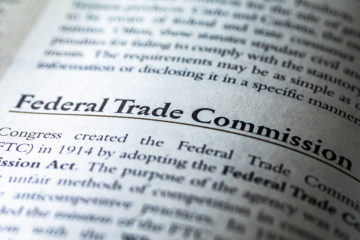Spirit Airlines has officially filed for bankruptcy, and the blame lies squarely on the Biden administration’s misguided antitrust policies. Jonathan Kanter’s Justice Department blocked Spirit’s merger with JetBlue, preventing a deal that could have strengthened competition and saved jobs. Now, Spirit is cutting flights, laying off employees, and struggling to survive—while the biggest airlines face even less competition.
Market Institute President Charles Sauer has a new article in Real Clear Markets on the Biden administration’s anti business antitrust policy.
“Budget airline Spirit Air recently filed for bankruptcy. Spirit has been struggling ever since the pandemic shut down most air travel. However, the reason it sees no alternative to filing for bankruptcy is that the Justice Department’s Antitrust Division under President Biden —headed by Jonathan Kanter—successfully blocked a proposed merger with Jet Blue in federal court.
Like Federal Trade Commissioner Lina Khan, Attorney General Kanter advocated replacing the consumer welfare standard that guided antitrust policy since the 80s with a “holistic”” approach that looks at how a transaction affects workers, communities, and other businesses. This allowed Kanter and Khan to question any merger, acquisition, or other action that will increase a business’s market share. In other words, any business transaction.
Kanter, Khan, and their allies ignored how a merger or acquisition involving two medium-sized or even large companies can make those companies better able to compete with larger competitors—thus making markets more competitive, benefiting workers and consumers. The now-squashed Jet Blue-Spirit merger is an example of a merger that, contrary to the Justice Department’s claim, would have made markets more competitive.
Blocking the Jet Blue merger further damages Spirit’s already precarious financial position. Spirit has lost $2.5 billion since 2020 and owes $1 billion in debt payments. Since the government blocked the merger, Spirit has started laying off employees and has sold 23 airplanes. This has forced it to reduce the number of flights it offers by cutting its routes by 20%.
It will take time for Spirit to rebuild and regain its previous market share— if it is able to do so at all. It may have increased difficulty obtaining capital because of the stigma many investors attach to a company that has filed for bankruptcy. Its bankruptcy will leave airline travelers with fewer options and higher prices.
Kanter, Khan, and their allies claimed that blocking mergers like the one between Jet Blue and Spirit would benefit workers. They should have told that to the Spirit workers being laid off, and to the workers in areas where the economy depends on tourism.
If the Justice Department had not pursued a case against the Jet Blue-Spirit merger, consumers would have the choice of flying on a more competitive low-cost airline. Airline workers would have benefited from having more potential employers. The U.S. economy would have benefited from a more competitive air travel marketplace. Even if the claim that the Jet Blue-Spirit merger would increase prices were true, this would still have been better for consumers and workers than to deny Spirit its best chance of getting out of debt and reviving the company.
The beneficiaries of the federal government’s blocking of the Jet Blue-Spirit merger are the big airline companies that now have less competition. This is not the only time the federal government has made markets less competitive by blocking a merger. Biden’s FTC succeeded in blocking the merger between grocery store chains Albertsons and Kroger on the grounds that allowing the companies to combine would weaken competition in the grocery store market. However, if the merger had gone through, the new company would only have claimed 13% of the marketplace, behind Wal-Mart.”


